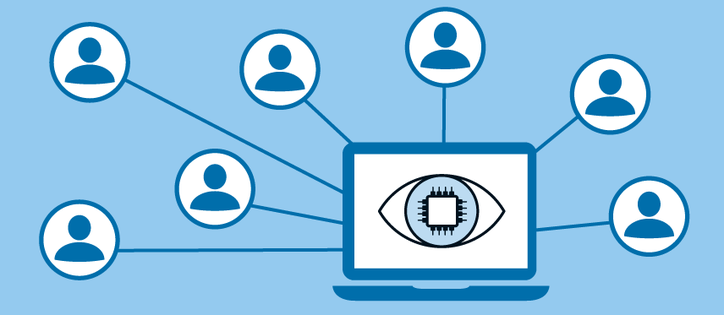Actualizaciones de Covid-19 de los afiliados
Advanced Procurement for Universities & Colleges (APUC)
Angus Warren, APUC, 7 May 2020
"The main impact on APUC's collaborative team has been an increased need to check the impact of COVID-19 on appointed Framework Agreement suppliers with a focus on business continuity and security of supply, ensuring continued supply of essential items to client institutions. Continued contractor engagement provided increased use of circular economy opportunities especially in the area of IT to enable fast relocation of office environments to home working.
Framework Agreements have been extended for limited periods as well as a small number of ongoing procurement activities at APUC being postponed to allow suppliers to focus on the survival of their business. Each Framework Agreement is being reviewed on a case by case basis.
At institutional level, we see procurement working on securing essential items for business continuity reasons and working closely with bottleneck and critical suppliers. Further, it is important to understand the make-up of the cost factors of contracts to account for government funding and service cost in order to maintain business provisions going forward.
It must be appreciated that currently aspects of responsible procurement will not be the priority of many suppliers who are concerned with the survival of their business. However, buyers must be cautious, that the Covid-19 situation has a risk of some entities in supply chains using it as an excuse to ignore human rights and environmental impacts. Focus on COVID-19 cannot eliminate our focus on the climate crisis and let human rights issues worsen within our supply chains.
Overall, Covid-19 has highlighted the importance of supply chain transparency. COVID-19 poses a risk to workers' health and hence highlights the importance of the workforce throughout product supply chains and the interdependence of countries. Therefore, public procurement needs to continue to embed socially responsible measures within their procurement process reaching down to health and safety and worker wellbeing.
Emphasis should be on leveraging existing systems and tools with focus on requirements of non-discrimination and equality as well as health and safety of workers. As the pandemic is highlighting, Personal Protective Equipment (PPE) to safeguard workers from any type of harm is pivotal and must be seen as a basic human right to protect the health of all workers exposed to risk. The Sustain Code of Conduct, the Sustain system as well as the Electronics Watch Code of Labour Standards are emphasising this.
New issues and heightened risks of human and labour rights violations may be indirect results of managing the Covid-19 situation, as greater risk to worker voice occurs due to surveillance technology implemented under the perceived purpose of fighting the virus. Public buyers will need to increase their focus on responsible procurement matters now and going forward to limit the human rights and environmental damage that is being pushed hard under the curtain of Covid-19."
London Universities Purchasing Consortium (LUPC)
Mike Kilner, LUPC, 21 April 2020
"The London Universities Purchasing Consortium (LUPC) has been engaging with its ICT suppliers since late January to understand the impact of the Covid-19 situation on global supply chains. In addition to the unfortunate deaths and illnesses arising from the outbreak and the subsequent reduction in manufacturing operations and travel bans in China, the PC supply chain remained disrupted due to Intel's ongoing CPU (central processing unit) supply issues. LUPC and its members are looking at shortages in the supply chain amidst a bigger demand arising from increased homeworking.
While LUPC worked on the connected issues of reduced product availability and price increases, we were also engaging with brands from our PC supply chain using the Electronics Watch guidance for public buyers. In March we sent our seven contracted brand suppliers questions about their compliance with the Chinese government-issued ‘Notice#5’ (on the orderly conducting of medical materials export). We also raised specific news reports on work time burdens for those workers that had returned to their workplaces. The answers received to date have been rather general, pointing to standard compliance with laws and regulations and a number of supplier trainings. A further follow-up to these answers is being undertaken at this time.
With the Covid-19 crisis developing dynamically and the impact expanded well beyond China to other centres of electronics production such as Vietnam, Malaysia and the Philippines, we will be engaging with our supply chains based on the guidance and expertise provided by Electronics Watch."
Enlaces útiles
- Impacts of COVID-19 on supply chain workers in the electronics sector - Updates from Business & Human Rights Resource Centre
- Responsible disengagement in the time of corona - SOMO, ECCHR and PAX position paper, (20 April, 2020)
- IndustriALL Global Union's publication on the right to refuse or to shut down unsafe work (8 April, 2020)
- Covid-19 - Advice for workers and employers, IndustriALL Global Union (30 March, 2020)
- Union responses to the novel coronavirus
- Information from ITUC affiliates, Global Union Federations and LabourStart about the COVID-19 coronavirus pandemic
- China’s trade unions caught in the headlights of the coronavirus crisis, China Labour Bulletin (1 April, 2020)
- Don't forget the people behind the PPE – migrant workers meeting the surge in demand for medical gloves, The Telegraph (17 April, 2020)


